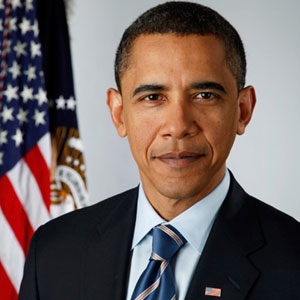ANCA WITHHOLDS SUPPORT FOR PRESIDENTIAL CANDIDATES
October 15, 2012|
|
WASHINGTON, DC – The Armenian National Committee of America (ANCA) announced today that neither President Barack Obama (D) nor former Massachusetts Governor Mitt Romney (R) has earned the Armenian American community’s formal backing heading into the November 6th presidential election.
“Neither Barack Obama, who turned his back on the multiple promises he made on Armenian American issues, nor Mitt Romney, who as a former Governor of Massachusetts, has no evident public record on issues of special concern to our community, has earned the support of Armenian American voters,” said ANCA Chairman Ken Hachikian. “At the level of our Executive Branch of government, despite substantial progress in Congress, among state governments, within the media, and across so much of American civil society, our country’s federal policies on Armenian American issues, sadly, remain hostage to the dictates of foreign officials, in Ankara and Baku. While we remain open to constructive engagement with both campaigns, we have no plans at this time to issue an ANCA endorsement this Presidential election cycle.”
|
|
The ANCA holds that neither Presidential candidate has earned the formal support of the Armenian American community, and, as such, presently has no plans to issue a 2012 endorsement in the race for the White House. At the same time, the ANCA remains ready and eager to represent the Armenian American views and values to the winner this November, and to continue to assertively engage with the White House, National Security Council, State Department, and all other foreign policy stakeholders and press for progress on the full range of issues on the ANCA advocacy agenda.
President Obama came into office, having earned the ANCA’s 2008 endorsement and broad-based support among Armenian American voters through his track record in the U.S. Senate and his repeated pledges to recognize the Armenian Genocide and to work for a range of other issues of special concern to Armenian Americans, among them a self-determination driven solution to Nagorno Karabakh, and a commitment to remain actively engaged with Armenian American leaders.
Once in office, President Obama’s Armenian Genocide pledge – explicitly, repeatedly, and unambiguously stated – were quickly betrayed, a reversal dramatically compounded, within his first 90 days in office, by his Administration’s arm-twisting of Yerevan into a pre-April 24th Road Map and subsequent Protocols project designed to give him political cover for breaching this covenant with American voters. Among the most notable examples of his betrayed pledge were his Administration’s opposition to Congressional recognition of the Armenian Genocide, and Secretary of State Hillary Clinton’s unchallenged statement dismissing the Armenian Genocide as a matter for historical debate. The President first signaled that he would break his pledge during a March 2009 speech in the Turkish Parliament during which he chose not to use the term Armenian Genocide in calling upon Turkey to address its past, but did note that his “personal” views in support of Armenian Genocide recognition remained unchanged.
The President fell short of his promises in other areas as well. He did not, as promised, seek “a lasting settlement for Nagorno-Karabakh based upon America’s founding commitment to the principles of democracy and self determination,” instead choosing to use his recess appointment power to send Matthew Bryza, a pro-Baku biased diplomat with conflict-of-interest issues, as the U.S. Ambassador to Azerbaijan. In addition, during his four years in office, despite his promise to maintain aid, President Obama sought to cut assistance to Armenia. Although he committed, as a candidate, to foster increased trade with Armenia, he failed to take any meaningful steps to increase bilateral commerce. Compounding all these policy reversals was his failure to honor his pledge to remain actively engaged with the Armenian American community. Not once during his four years in office did he meet with Armenian American leaders.
The Republican Presidential candidate, Mitt Romney, former Governor of Massachusetts, home to one of the nation’s oldest and most vibrant Armenian American communities, has no evident public record on Armenian issues from his four-year tenure as Governor or his two campaigns for the White House. He has also not reached out, in any meaningful way, to meet or consult with the Armenian American community’s leadership.
To date, neither Governor Romney nor President Obama has responded to repeated ANCA written requests that they reach out to Armenian American voters by outlining their views on issues of special concern to a politically active community spread out across a number of pivotal swing states. The ANCA has repeatedly reached out to both candidates, inviting them to meet with Armenian American leaders and publicly address the concerns of this politically active electoral constituency.
Last week, two of the leading Greek and Armenian American advocacy organizations, representing nearly five million citizens from across the United States, jointly called upon President Barack Obama and Republican Presidential candidate Mitt Romney to end their silence on Armenian and Greek issues and outline their views: “As two of the leading Greek and Armenian American advocacy organizations, we join together today in calling upon President Obama and Governor Romney to publicly present the specific principles, priorities, and policies that would guide their Administration’s actions on issues of special concern to our nation’s nearly 5 million citizens of Greek and Armenian heritage,” said American Hellenic Institute (AHI) President Nick Larigakis and Armenian National Committee of America (ANCA) Executive Director Aram Hamparian.
The ANCA, in the coming days, will issue a full array of Congressional endorsements, accompanied by a detailed ANCA Legislative Report Card for every incumbent member of the U.S. House and Senate. Each federal legislator is assigned an ANCA Grade that reflects his or her support for a broad range of Armenian American concerns.

